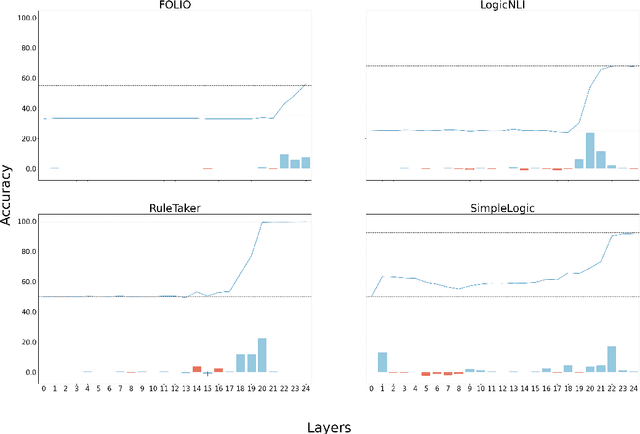Paulo de Tarso P. Filho
Assessing Logical Reasoning Capabilities of Encoder-Only Transformer Models
Dec 18, 2023



Abstract:Logical reasoning is central to complex human activities, such as thinking, debating, and planning; it is also a central component of many AI systems as well. In this paper, we investigate the extent to which encoder-only transformer language models (LMs) can reason according to logical rules. We ask whether those LMs can deduce theorems in propositional calculus and first-order logic; if their relative success in these problems reflects general logical capabilities; and which layers contribute the most to the task. First, we show for several encoder-only LMs that they can be trained, to a reasonable degree, to determine logical validity on various datasets. Next, by cross-probing fine-tuned models on these datasets, we show that LMs have difficulty in transferring their putative logical reasoning ability, which suggests that they may have learned dataset-specific features, instead of a general capability. Finally, we conduct a layerwise probing experiment, which shows that the hypothesis classification task is mostly solved through higher layers.
 Add to Chrome
Add to Chrome Add to Firefox
Add to Firefox Add to Edge
Add to Edge